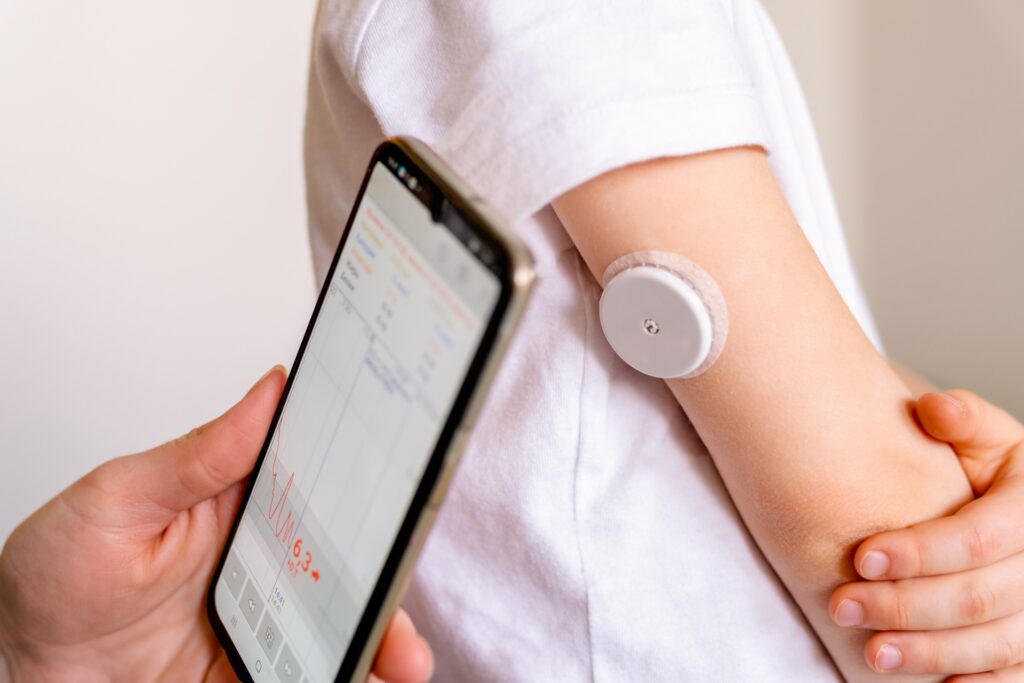Medications to Avoid While Wearing a Continuous Glucose Monitor
Continuous Glucose Monitors (CGMs) have revolutionized diabetes care by providing real-time data and alerts, empowering individuals with diabetes to make informed health decisions. However, the effectiveness and accuracy of these devices can be compromised by certain commonly used medications. In this guide, we will explore the impact of medications like aspirin, Tylenol, and vitamin C on CGMs and provide steps to ensure reliable diabetes management.
If you want to see either you or a friend qualify for a CGM, Fill out the form here.
CGMs offer a window into blood glucose levels, utilizing interstitial fluid just beneath the skin’s surface. Yet, certain medications trigger reactions in this fluid, potentially leading to misleading readings. The impact varies depending on the CGM model used. Let’s delve into specifics:
Dexcom CGMs:
Acetaminophen (Tylenol): High doses of acetaminophen have been found to influence the accuracy of Dexcom G4 CGMs. The interaction causes a chemical response in interstitial fluid, resulting in elevated levels of acetaminophen glucuronide. This compound can be erroneously detected as glucose by the CGM sensor, leading to falsely elevated glucose readings. Although Dexcom G6 has minimized its sensitivity to acetaminophen, exceeding the recommended maximum dose could still trigger inaccurate readings.
Hydroxyurea: Even with reduced acetaminophen sensitivity, Dexcom G6 still faces challenges when used alongside hydroxyurea, a medication used for cancer and sickle cell anemia treatment. Dexcom warns that hydroxyurea consumption might lead to higher blood sugar readings than actual levels. This discrepancy could endanger patient safety, potentially causing missed hypoglycemia alerts or errors in blood sugar pattern analysis. Learn more about Positive Hypoglycemic Decreases in Underserved Patients here.
Abbott CGMs:
Ascorbic Acid (Vitamin C): While vitamin C is essential for health, excessive doses – often found in certain supplements or cold medications – can disrupt Freestyle Libre 2 CGM accuracy. Elevated vitamin C levels can trigger electrochemical interference with the CGM sensor, causing inaccurate glucose readings. Abbott advises that consuming over 500 mg of ascorbic acid daily might alter sensor readings, risking the oversight of critically low blood sugar events.
Salicylates (Aspirin): Salicylate-containing drugs like aspirin can potentially interfere with the FreeStyle Libre 14-day flash glucose monitoring system. The precise mechanism remains unclear, but salicylates might influence the chemical composition of interstitial fluid, affecting the sensor’s ability to precisely measure glucose levels. Abbott indicates that aspirin consumption alongside this CGM model could yield lower glucose readings.
Navigating CGM Interference:
It’s crucial to recognize that not everyone will experience CGM interference while taking these medications. The extent of impact varies between individuals and CGM devices. Some devices may remain unaffected. However, it’s advisable to be mindful of potential interactions and adopt precautions for accurate glucose monitoring.
Read Guide about Wegovy Dosage Guide: The Best Way For Weight Loss
- Education: Familiarize yourself with your device’s safety guidelines. Knowledge empowers you to make informed decisions.
- Consult Your Healthcare Provider: If you’re unsure about potential interference, consult your healthcare provider. They can offer personalized guidance based on your medical history and current medications.
- Regular Monitoring: Consider periodic fingerstick glucose testing to cross-reference CGM readings, especially when taking medications prone to interference.
- Alternative Medications: If feasible, discuss medication alternatives with your healthcare provider. Choosing medications with lower interference potential can enhance CGM accuracy.
In Conclusion:
The evolution of CGMs has significantly improved diabetes management. However, medication interference underscores the importance of vigilance. By being aware of potential interactions, staying informed about your device’s capabilities, and collaborating closely with your healthcare provider, you can navigate medication-related challenges and ensure the reliability of your CGM for optimal diabetes management


